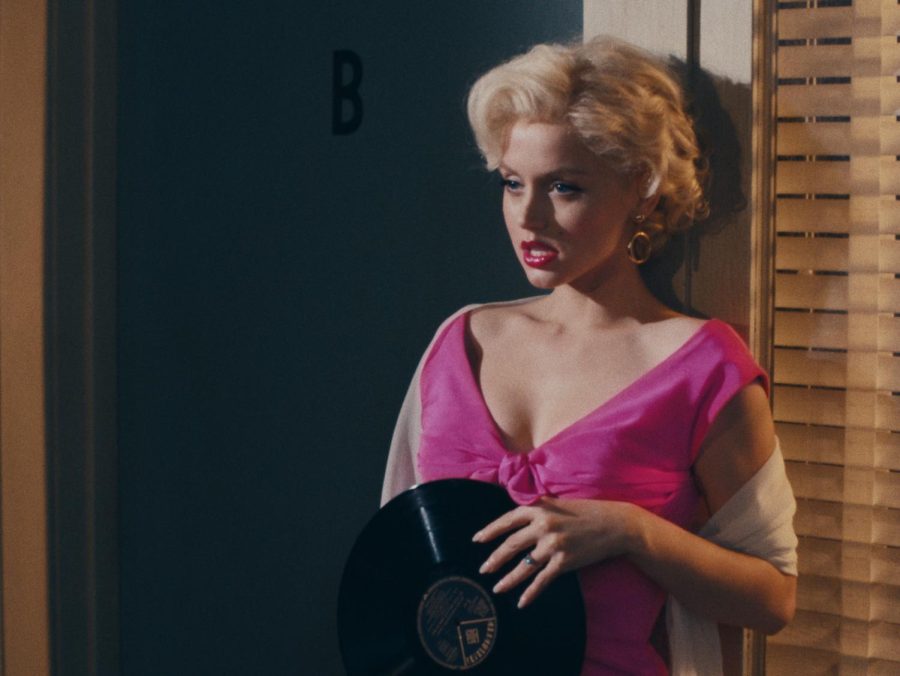Film Review: “Blonde”
“Blonde” hit Netflix Sept. 28, 2022 and has been criticized for its insensitivity to difficult subjects and heavy handed anti-abortion messages.
October 19, 2022
The latest film to explore the most famous woman of the 20th century, “Blonde”, hit Netflix Sept. 28, 2022, garnering the streaming service its first NC17 rating. The film tackles difficult issues that Marilyn Monroe faced in her life, including the sad idea that any man she gets close to turns violent or exploits her, including the director of this film.
“Blonde”, directed by Andrew Dominik, is based off of a novel by Joyce Carol Oates of the same name, which shows us a part-fact part-fiction version of American actress Marilyn Monroe’s life. The film version approaches this story through a pretty standard biopic formula.
It starts with her traumatic childhood where everyone uses her full birth name, Norma Jean, any time they refer to her. It then goes on to show us her struggles throughout her career, hitting the major moments in her life and leading up to her untimely death. The film is framed around a pursuit to find Monroe’s father, who left her and her mother as a child, as she embarks through stardom.
Despite the film’s lackluster reception, Ana de Armas brings Marilyn to life with an uncanny resemblance. After launching into the mainstream through Rian Johnson’s 2019 film “Knives Out,” De Armas has landed several notable roles including supporting roles in “No Time to Die” (2021) and “The Gray Man” (2022), but “Blonde” was an opportunity to showcase her acting talents in a leading role. While the film does have many downfalls, de Armas’ performance is not one of them.
The film does not shy away from difficult subjects like abuse, trauma, rape and abortion. But instead of handling any of these topics sensitively, Dominik makes them the main focus. They are almost used as a twisted way to draw in viewership. These are serious issues that need to be talked about, but this film rarely shows any empathy or compassion towards the victim of this suffering.
“Blonde” has been criticized for its heavy handed anti-abortion messages; Planned Parenthood even called the film “anti-abortion propaganda.” My issue lies in the fact that we never see the emotional impact the two forced abortions (which are disturbingly shown in graphic detail) had on Monroe. Instead the audience gets a CGI fetus brought to life with a speaking role.

It would appear that Dominik wanted to tell us Marilyn Monroe was a smart and well educated young woman despite public opinion, but this message is sorely missed. He takes every opportunity to show the stereotypical bimbo blonde, refusing to show the actual nuance and genius Monroe had. If you need proof of this, the very first image we see of Monroe in the film is a slow-motion shot of her butt. She is shown sexualized and dumbed down which is clearly frustrating to Monroe, and apart from a reference to an obscure play people are surprised to hear she’s read, she is unfortunately never shown to be more than a pretty face.
Miss Monroe is not new to the world of biopics. There are dozens of movies about her and her life, so much so that there is an entire Wikipedia page dedicated to this, but have we not explored this idea enough? Her life was full of tragedy and trauma, which filmmakers continue to exploit and profit off of. I think it is time to let Norma Jean rest.
“Blonde” is now streaming on Netflix.







































































